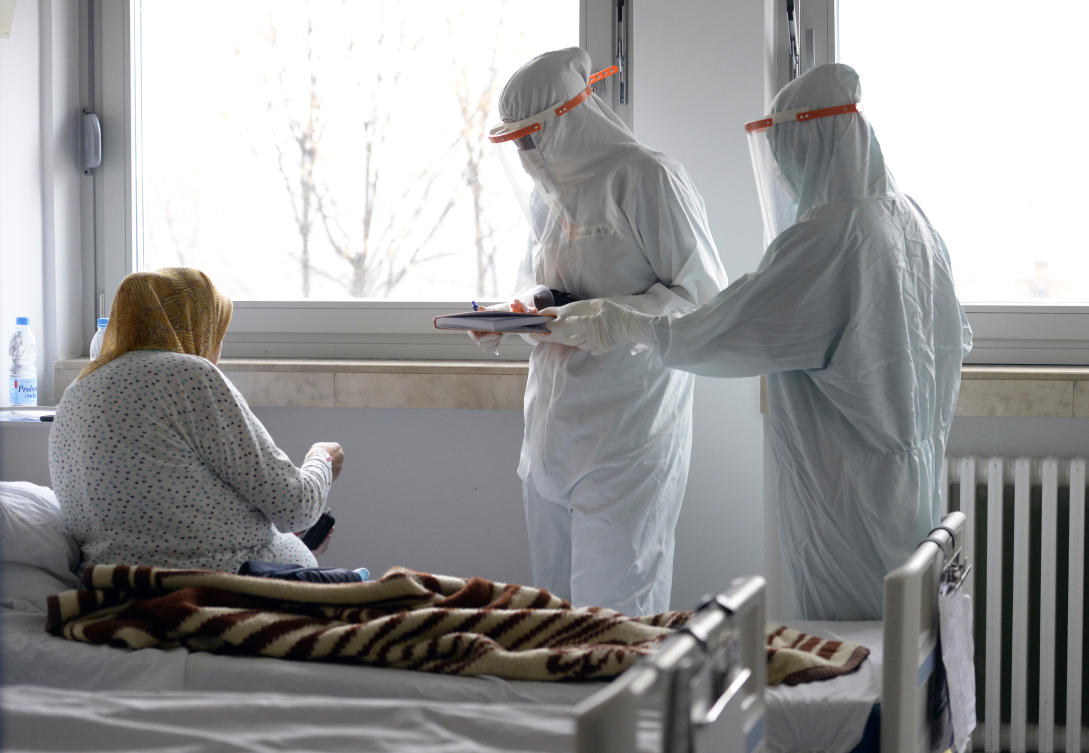LONDON: People who have coronavirus are most likely to be highly infectious in the first week after symptoms appear, according to new research carried out at Scotland’s University of St. Andrews.
The study indicated that it was usually within five days of symptoms first appearing that people were most at risk of passing the virus on.
Researchers said the findings highlight the importance of avoiding contact with others as soon as symptoms appear, and shed light on why the virus is so difficult to contain.
“This is the first systematic review and meta-analysis that has comprehensively examined and compared viral load and shedding for … three human coronaviruses,” said the study’s lead author Muge Cevik.
“It provides a clear explanation for why Sars-CoV-2 spreads more efficiently than Sars-CoV (SARS) and Mers-CoV (MERS) and is so much more difficult to contain,” he added.
“Our findings are in line with contact-tracing studies which suggest the majority of viral transmission events occur very early, and especially within the first five days after symptom onset, indicating the importance of self-isolation immediately after symptoms start.
“We also need to raise public awareness about the range of symptoms linked with the disease, including mild symptoms that may occur earlier on in the course of the infection than those that are more prominent like cough or fever.”
The findings stand in contrast to previous coronavirus outbreaks, such as SARS and MERS, in which infectiousness peaked at between seven and 14 days after symptoms first showed, making them significantly easier outbreaks to control.

Royal court advisor says Saudi Arabia to be one of the first countries to receive coronavirus vaccineIndia’s total number of coronavirus cases crosses 9 million

